"A Therapist Addresses the Violent Implications of 'Decolonizing' Psychology"
My latest appearance on The Radical Center.
Below is my conversation with Leslie (The Radical Center), which was a follow-up to a chat we had over two years ago about issues in counseling training.
Thank you so much for sharing your platform and time for this talk, Leslie, and thank you to those who are here from this video.
By way of a brief introduction: My name is Katie Kernodle, I graduated from my counseling program at NYU late last year, and I’ve spent over two years writing about Communism in education, counseling/psychology, and religion under my titular nom de guerre, The Kids Are Not Alright.
Prior to receiving my MA, I also obtained a BA in Homeland Security Studies (Tulane) and another MA in International Security Studies (University of Arizona). I’ve long had a research interest in/concern with terrorism and substate conflict, which may provide a unique POV in this context and help me to fully process the practical implications of Marxist conscientization deployed en masse.
If there’s one thing I want to communicate, it’s that professional psychotherapy not only permits but actively trains and codifies as ethical, competent practice the radicalization of vulnerable, help-seeking individuals for the facilitation of Communist revolution.
Such revolutionary action, which is necessarily built into conscientization, can and will include sedition, violence, and disorder for at least some proportion of participants.
By “professional psychotherapy,” I mean licensure-track training/education, credentialing, ethics, and similar standards of practice in multiple disciplines, including counseling, social work, and psychology.
Importantly, the profession's exclusive standard-bearers (like the APA and ACA) have recently engaged in a lockstep embrace of liberation and decolonial psychologies, both of which are foundationally oriented towards facilitating insurgency and armed struggle.


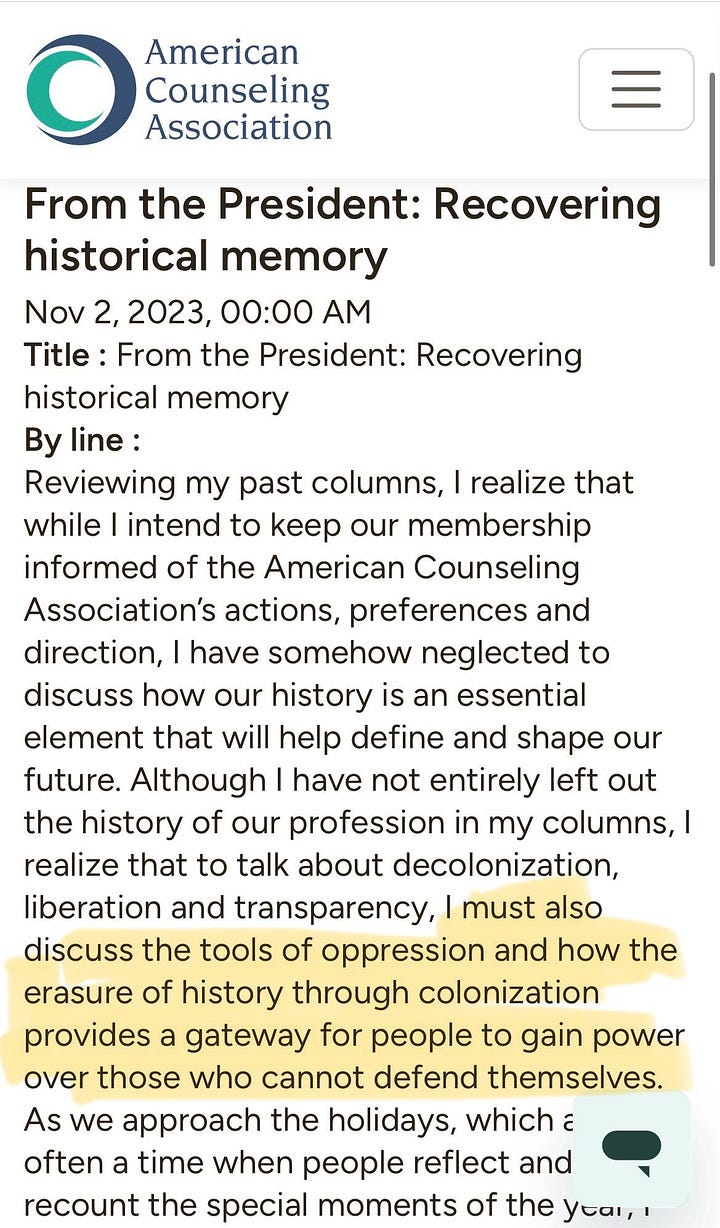

The practice of these ‘psychologies’ is subversively presented as a means of addressing economic/material concerns, healing trauma, and restoring wholeness to the fractured sense of self/community, which is said to be caused by the systemic violence of racism, colonialism, capitalism, etc.
In reality, they’re very serious revolutionary practices.
Liberation psychology, borne out of Latin American liberation theology and the “analectic turn” of community social psychology, views milquetoast academic “Wokeness” (critical reflexivity) as insufficient for true liberation, and combines radicalization strategies (e.g., testimonios, “recovering historical memory”) with “problem-solving coping” that explicitly includes activism and “resistance” (like “confronting the persons perpetrating the stress and trauma of oppression”).
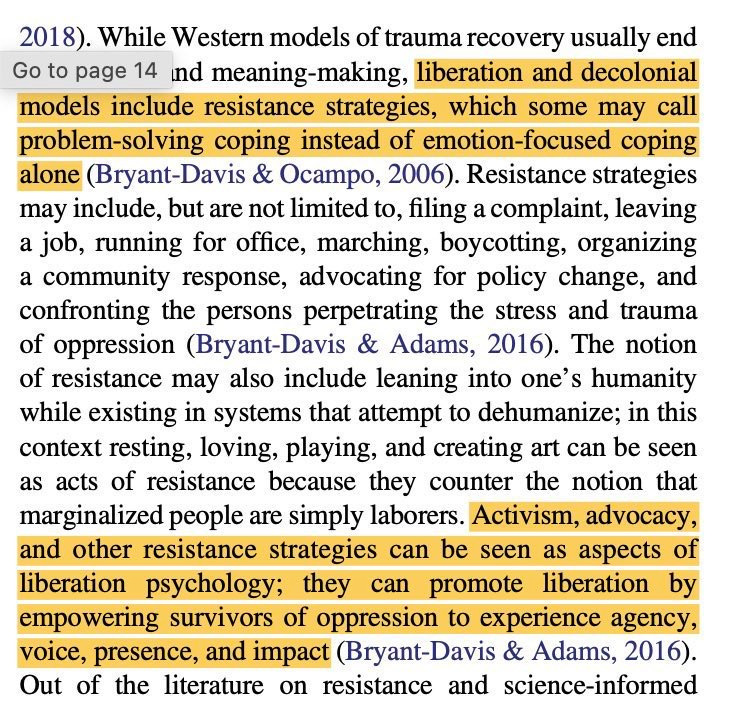
Similarly, decolonial psychology is grounded in Frantz Fanon’s psychology of oppression, which openly includes a ritual rebirth ‘in the blood’ of both colonized and colonizer, wherein the colonized participates in a disordered, violent, and terroristic uprising to negate the psychological and material violence allegedly inflicted upon him by the colonizer. This is meant to bring about both personal and collective freedom and integration of a fractured sense of self brought about by colonization.


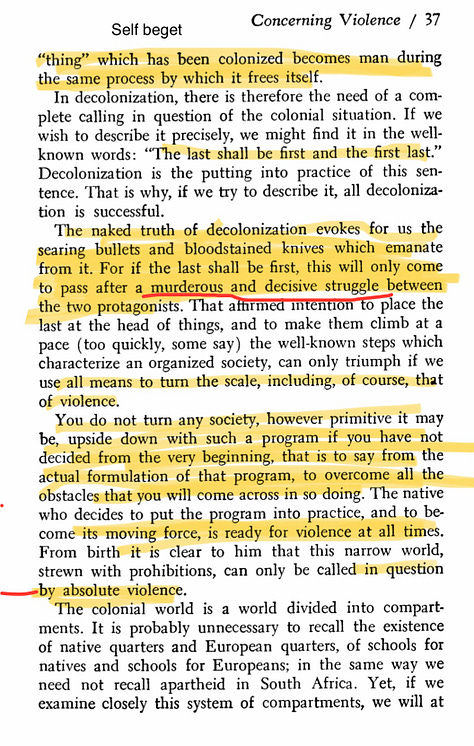
This ritual is best described as “blood magic,” and variations of this theme occur in various Marxist/Leninist/Maoist revolutions.
This is what makes the Latin American context particularly relevant, given the role of liberation theology and precedents of groups like The Shining Path (Sendero Luminoso) and the Revolutionary Armed Forces of Columbia—People’s Army (FARC). It’s also worth noting that the decolonizing “watermelon alliance” is thoroughly mainstream among the educated, progressive left, with explicitly expressed sympathies for Hamas, Hezbollah, and even ISIS.
I know that this might be difficult to process for those of us in polite white- and pink-collar America, but this can and will devolve into an extremely serious situation, from which there is no going back.
As Fanon notes, “decolonization is always a violent phenomenon…quite simply the replacing of a certain 'species' of men with another" in "total, complete, and absolute substitution," "experienced in the form of a terrifying future in the consciousness" of the colonizers. It’s a "murderous and decisive struggle," the "naked truth" of which brings to mind "searing bullets and bloodstained knives."
And as 2023 APA President, tenured professor at Pepperdine University, and ordained AME Minister Dr. Thema Bryant reminds us, “decolonization is not just a metaphor.”

Due to the structure of cults, the use of rhetorical tactics to obscure meaning to the casual observer, and the emphasis on action over theory, participants do NOT need to consciously know doctrine or purpose to engage in their practice.
Well-meaning clinicians, following their training and standards, may also use the language or engage in these practices without knowing the specialist meaning or ultimate intent. This makes the situation incredibly difficult to navigate and likely reflects broader issues in the field beyond “Wokeness.”
While I am primarily concerned with outright radicals hiding in this milieu, I fear for the average clinician who sincerely trusts standards, supervision, consultation, and other checks and could inadvertently engage in something they would otherwise not consent to.
However, these standards and the academic literature underlying them clearly reflect radical revolutionary goals, namely the subversion and overturning of existing economic, cultural, sociopolitical, and psychological structures for Communism.
The framework and methods employed in clinical practice, such as raising awareness of collective identity, power/privilege dynamics, and “recovering historical memory,” also betray established radicalization strategies for revolutionary terrorism.
As Jerrold Post notes in The Mind of the Terrorist:
“Explanations of terrorism at the level of individual psychology are insufficient in trying to understand why people become involved in terrorism. As observed, terrorists are not depressed, severely emotionally disturbed, or crazed fanatics. It is not individual psychopathology, but group, organizational, and social psychology, with a particular emphasis on ‘collective identity,’ that provides the most powerful lens through which to understand terrorist psychology and behavior” (p. 8).
These are tried-and-true methods that have brought us countless Marxist and Islamist (Marxified Islam) revolutions and insurgency movements, including many that the now-mainstream New Left aligns with.
Consider that, in our current context, primary enemies include the United States, Trump supporters, Israel (Jews), “Zionists” (Jews), “bankers” (Jews), property/business owners, and similar identities.
There are major therapy directories proclaiming their support to free Palestine, Sudan, Congo, Haiti, Turtle Island (North America), Tigray, and Yemen.
Take a moment and think about where this is headed.
Then, recognize that there are currently countless clinicians facilitating it with the full backing of professional bodies, standards, training, and ethics.
Given that this “decolonial turn” is explicitly related to “global” and “international psychology,” per Bryant, it’s also long past time to get clear answers about the relationship between these standards and practices and the policies of major supranational bodies (e.g., UN, WHO, and World Federation for Mental Health, including the Sustainable Development Goals), as well as any similarly subversive and/or foreign interests.
While I don’t enjoy concluding with this, I still must say:
The genie is out of the bottle, and I struggle to see how we might pull back from this before, to roughly quote Leslie, the “entire enterprise collapses.” Right now, my goal is to prevent as many people from being taken down with it as possible.
Being highly reserved by nature, without any standing in the field, and a relatively unorthodox POV, it has been difficult to figure out how to communicate this most effectively. I’m fortunate that many people and groups have helped me realize that I’m not alone and are doing great work to address this.
I will soon publish a more detailed article on liberation and decolonial psychologies, which I hope will clarify some points I made here and in the video.
I also plan to continue discussing this when given the opportunity, and I’m working on improving my public speaking skills so that I can do so more effectively.
Please feel free to comment below or contact me at thekidsarenotalright01@gmail.com with thoughts or inquiries.
Thank you very much for your time,
-Katie at The Kids Are Not Alright




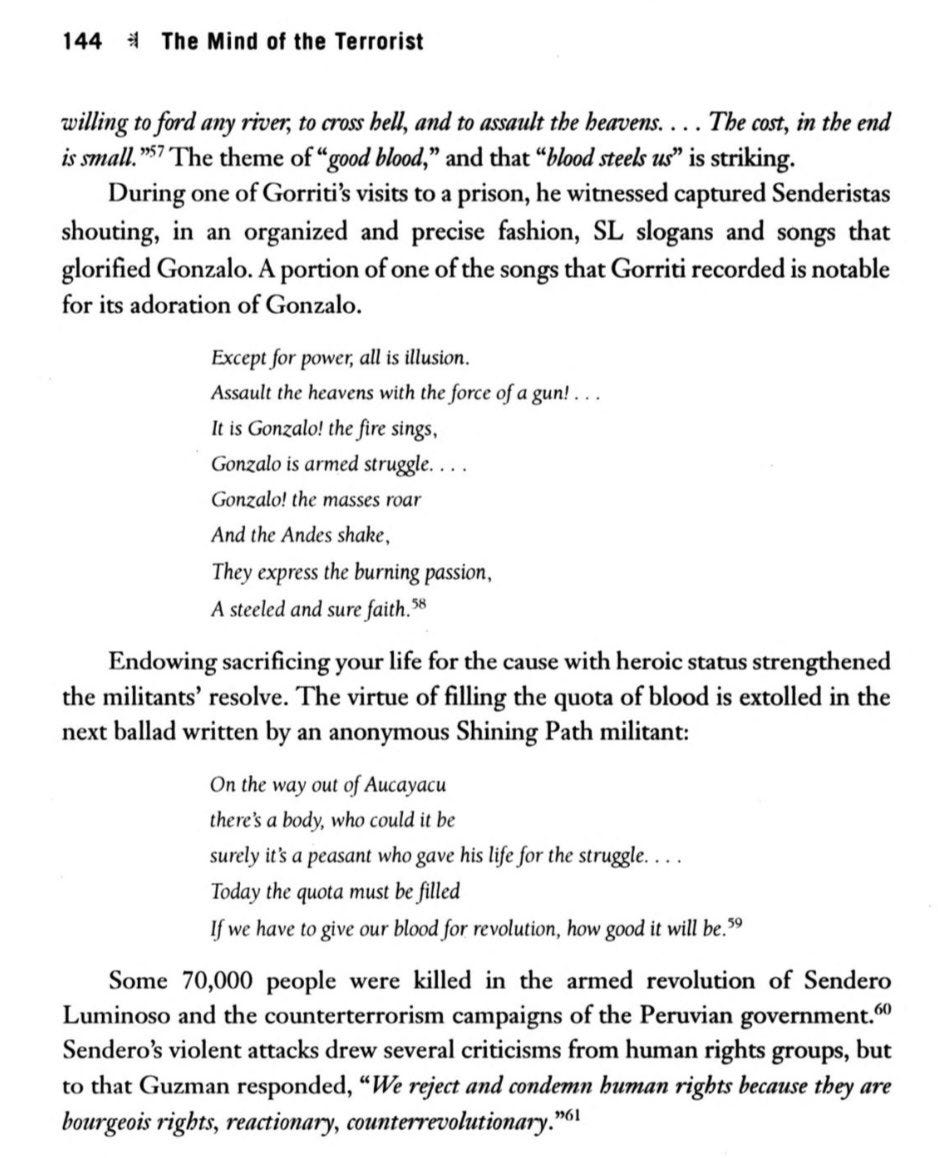
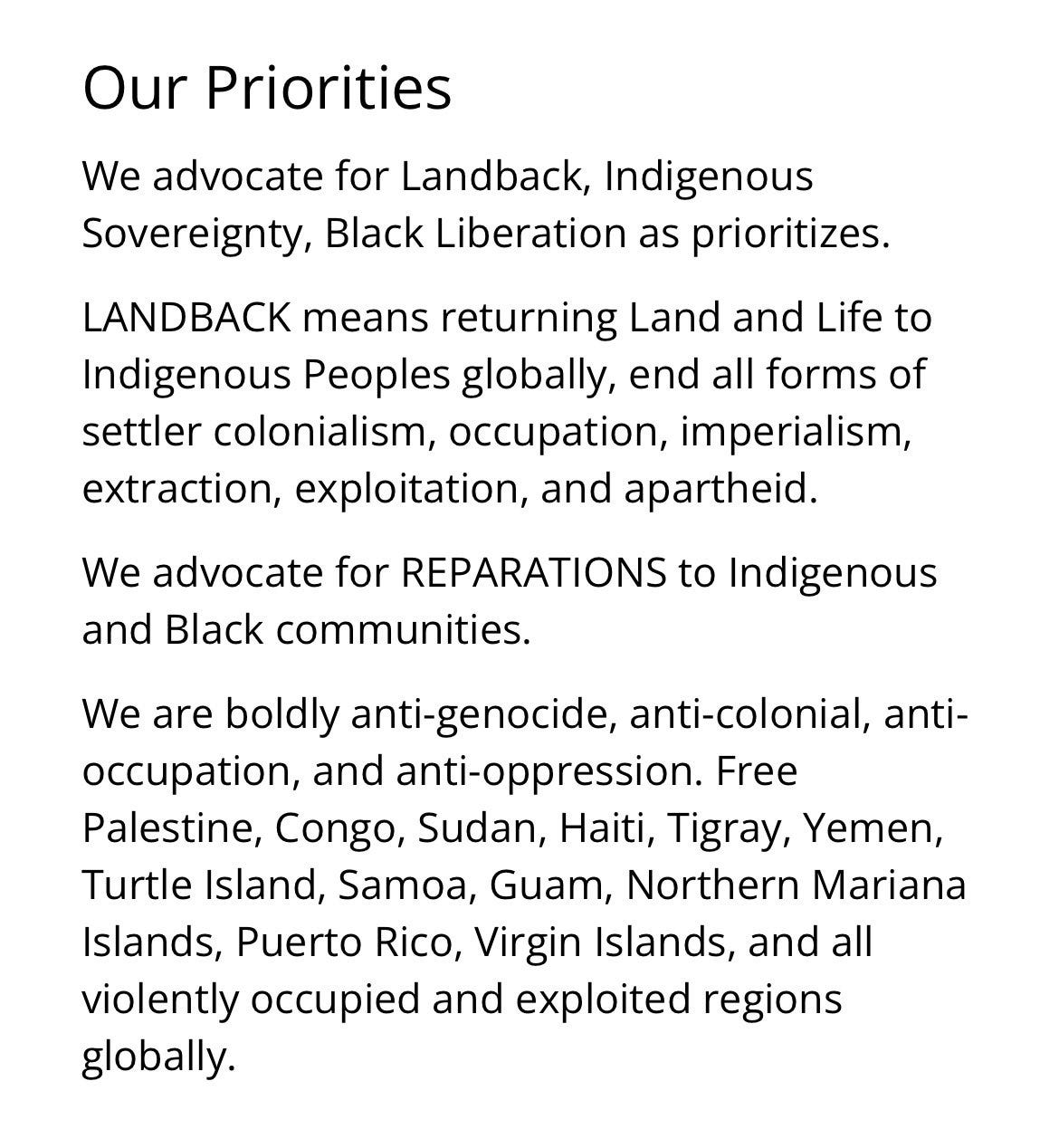
What a royal disaster! What does one do with this? I have thought about going into some sort of psychology or counseling work, but I'm afraid I would be quite the contrarian to this kind of training, potentially incurring significant pushback from professors and fellow students. Where does one get trained without all the indoctrination? It's just passing the indoctrination onto the patient. How is this helpful in the healing process? It looks to just make the patient angrier and feeling more oppressed when they might have been either of those things before.
This is a great piece, Katie, and articulates something that I've been thinking about for a long time (which I always appreciate as it helps me clarify my own process). The idea that a helping profession is given the power to impose what is the "correct" way to think on extremely complex issues, even if you agree wholeheartedly with that list (and many therapists probably do) is a hell of a worry. It's one step away from "if you don't think like us, you are not deserving of help". That's not the kind of practitioner I am interested in being.
To say nothing of the kinds of personalities who are drawn to seeking power within the structures of all professions, including psychotherapy.